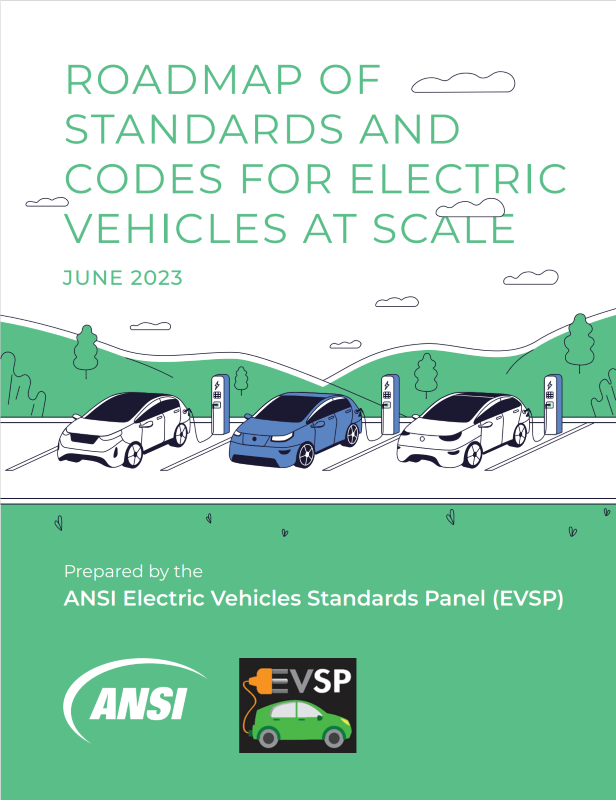Building on the earlier ANSI EVSP work, this roadmap seeks to describe the current and desired future standardization landscape that will support and facilitate EVs at scale. It identifies key safety, performance, and interoperability issues, notes relevant published and in-development standards, and makes recommendations to address gaps in codes and standards. This includes recommending pre-standardization research and development (R&D) where needed. It also includes identification of prioritized timeframes for when standardization work should occur and SDOs or other organizations that may be able to lead such work. The roadmap’s primary focus is on light-duty, on-road plug-in electric vehicles (PEVs) that are recharged via a connection to the electrical grid, as well as the supporting charging infrastructure needed to power them. Medium and heavy-duty EVs are also covered, as is wireless charging. Topics covered include standards to address high power DC charging, storage (i.e., microgrid, distributed energy resource management systems) integrated with DC charging, vehicle grid integration, high power scalable/ interoperable wireless charging, and vehicle-oriented systems. The broad target audience includes vehicle manufacturers, entities that will be installing and operating charging infrastructure, SDOs, U.S. federal, state, and municipal government agencies, electric utilities, and others. The roadmap has examined a number of issues and identified a total of 37 gaps with corresponding recommendations across the topical areas of vehicle systems, charging infrastructure, grid integration, and cybersecurity. Of that total, 14 gaps/recommendations have been identified as high priority, 20 as ANSI EVSP Roadmap of Standards and Codes for Electric Vehicles at Scale Page 10 of 170 medium priority, and 3 as low priority. A “gap” means no published standard, code, regulation, policy, etc. exists that covers the particular issue in question. In 23 cases, additional R&D is needed. The hope is that this roadmap will be broadly adopted by the user community and that it will facilitate a more coherent and coordinated approach to the future development of standards for EVs. It is envisioned that the roadmap be widely promoted and that some mechanism be established to assess progress on its implementation.
Preview the report here:
 Loading...
Loading...
More About this Resource
Publisher: ANSI Electric Vehicles Standards Panel
Date: July 20, 2023
Type: Research Reports
Countries: United States
States: None
